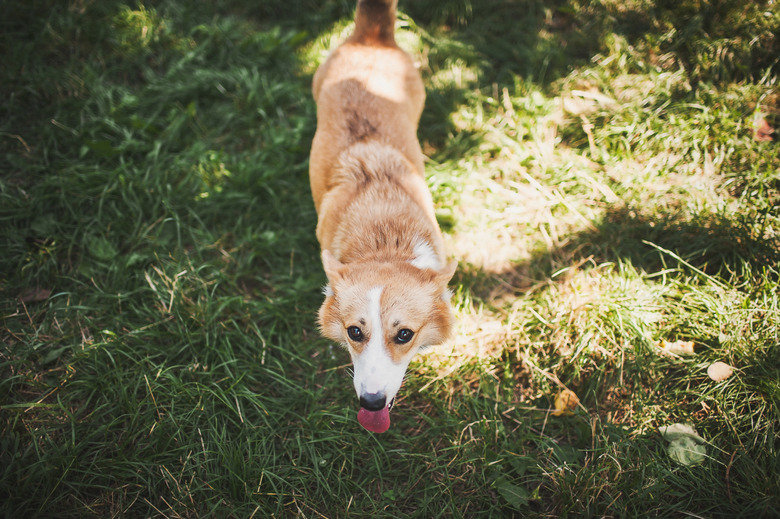How To Treat Rickets In Dogs
How to Treat Rickets in Dogs
How to Treat Rickets in Dogs
Dr. Shagufta Mulla, a veterinarian with a DVM degree from Colorado State University with 20 years of experience as a small animal veterinarian, explained that rickets only affects young, growing dogs and rarely occurs naturally. Instead, rickets typically stems from a nutritional deficiency or an abnormal ratio of the amounts of calcium to phosphorus. The treatment most veterinarians recommend for dogs with symptoms of rickets consists primarily of specific alterations to the diet but wait for your veterinarian's advice since simply adding more calcium to your dog's diet won't necessarily help prevent rickets. It can exasperate the problem instead.
"Too much calcium can also cause rickets-like signs because it messes up the calcium:phosphorus ratio," explains Dr. Mulla. "So adding more calcium to your dog's diet to avoid rickets can be a problem too."
Canine rickets explained
Canine rickets explained
Canine rickets is a disease of the bones and growth plates, with symptoms that include a stiff gait, trouble standing up, bowed legs, lameness, fractures, swelling around long bone growth plates, limb deformities, and other abnormalities. "In dogs, long bones are in the upper and lower parts of their front and back legs," says Dr. Mulla. Thankfully, the prognosis for young dogs with rickets is typically good provided that they have not suffered permanent damage.
There is a hereditary vitamin D-resistant version of canine rickets. This disease is caused by abnormality of the vitamin D receptor (VDR) gene. Nutritional rickets is much more common so dogs with this inherited condition may be treated for vitamin D-dependent rickets first and it may not help. Because the problem is a lack of vitamin D receptors, treatment with supplemental vitamin D is not helpful. Since puppies with this condition do not develop strong bones, spontaneous fractures is a concern.
If your dog is diagnosed with rickets
If your dog is diagnosed with rickets
If you are worried that your dog may have rickets, take them to the veterinarian for a thorough examination. If you change your dog's diet or take any other action before receiving an official diagnosis, you could endanger the animal's health. Your veterinarian will likely test your dog's blood concentration for phosphorus, vitamin D, and calcium. A vitamin D deficiency, low phosphorus, or deficient calcium levels can cause rickets.
Your veterinarian might also use radiographs to examine large bones and joints for deformities. "If your dog has rickets, the radiographs (x-rays) will show the growth plates as being wider than normal," says Dr. Mulla. "Your dog's bones may also appear less dense (less white) on the X-ray than a healthy pup's bones because the bones are less mineralized."
If your veterinarian diagnoses your dog with rickets, follow your veterinarian's suggestions regarding vitamin D supplementation. If your veterinarian advises that you add vitamin D to your dog's diet, be sure to ask what form of vitamin D supplementation is best and follow the amount your veterinarian recommends. Don't formulate the dose yourself; you might accidentally cause vitamin D toxicity.
What dogs with rickets should eat
What dogs with rickets should eat
When it comes to feeding a dog with rickets, be sure to consult your veterinarian. Instead of simply supplementing your dog's diet with nutrients, your veterinarian might advise that you change it completely. Your veterinarian may suggest a high-quality commercial pet food or one that's specially created by a credentialed veterinary nutritionist. All-meat diets can also cause rickets, so your vet might suggest you switch your dog to something with more variety.
According to Tuffs University, just because a certain dog food has claims made by the Association of American Feed Control Officials (AAFCO) during production, the manufacturer may not have tested the final product to ensure that the minimum AAFCO levels are still being met. And pet food companies are not required to provide very much nutritional information, so picking a quality pet food manufacturer is important. All pet food labels must include an address to contact the manufacturer or distributor, and you can usually find their website and email address online if you need to gather additional nutritional information.
The bottom line
The bottom line
Rickets is a disease of the bones and growth plates. This disease typically stems from a nutritional deficiency or an abnormal calcium to phosphorus ratio. If you suspect that your dog may have rickets, take them to the veterinarian so that they can be properly diagnosed. Don't try to create a homemade diet with a higher vitamin D dosage without expert advice because that could cause a nutritional problem in another area. Your veterinarian will look for clinical signs and likely take X-rays to determine if a change in diet is necessary.


